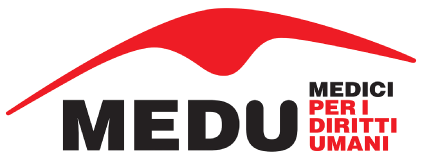EXODI is an interactive web map built upon testimonies of 2,600 migrants from sub-Saharan Africa that were collected in nearly four years of activity (2014-2017) by the operators and volunteers of Medici per i Diritti Umani/Doctors for Human Rights (Medu). They are part of those 900 thousand men, women and children landed on Italian shores in the last 16 years, of which almost the half in the last 36 months. They belong to those who survived the crossing of the Central Mediterranean (which has seen at least twenty thousand migrants dead or missing since 2002), the crossing of the Sahara and the detention and the kidnapping along the routes, whose number of victims is tragically high although unknown to everyone in its real dimension.
The map describes in the simplest and detailed way the Migratory Routes from Sub-Saharan Countries to Italy, the difficulties, the violence, the tragedy and hopes encountered during the trip by the protagonists. This map is addressed to all those who want to understand and deepen the human experience marking our time. In this sense, EXODI is not only a map showing the stages and paths, as well as a report with data and statistics, but above all, a testimony that describes life stories. It is an interactive and in progress web map that is periodically updated with new testimonies gathered from all those who share the story of their own journey.
The information was collected in Sicily (in Pozzallo Hotspot, in the the Centres of Special Reception for Asylum Seekers/CAS of Ragusa and in the Reception Centre for Asylum Seekers/CARA of Mineo) and in Rome (in informal reception centres and at Medu Psychè Centre for rehabilitation of victims of torture). Testimonials were also collected in Ventimiglia and Egypt, specifically in Aswan and Cairo. In all these places Medu’s work guarantees social and health support to migrants, first medical assistance as well as medical and psychological rehabilitation services for victims of torture and inhuman and degrading treatment. Through updated data EXODI aims also to describe the physical and mental consequences of the journey on the health of an entire generation of young Africans; a journey in which, as a witness said, “you are no longer considered as a human being”.



